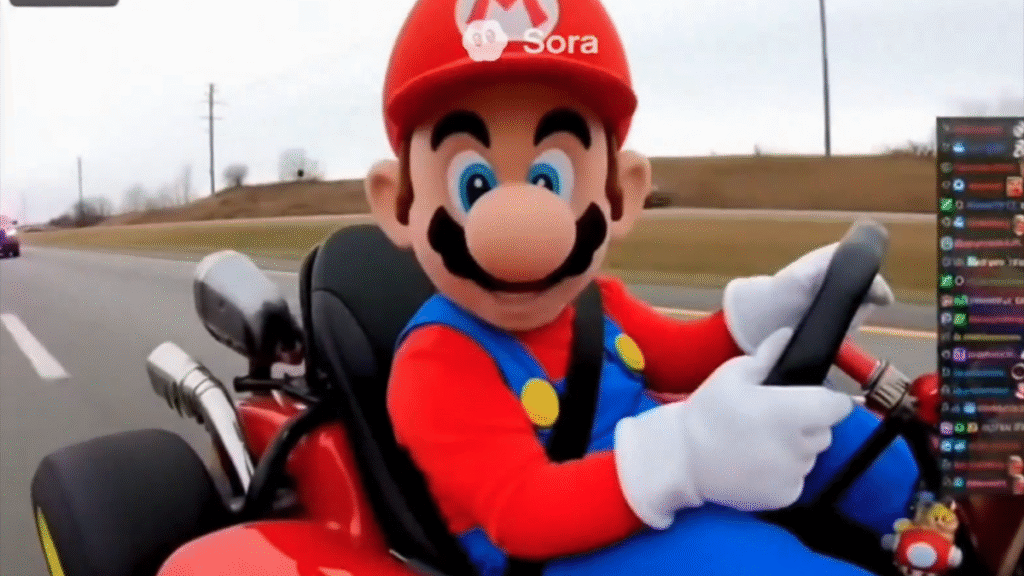The complete copyright-free-for-all approach that OpenAI took to its new AI video generation model, Sora 2, lasted all of one week. After initially requiring copyright holders to opt out of having their content appear in Sora-generated videos, CEO Sam Altman announced that the company will be moving to an “opt-in” model that will “give rightsholders more granular control over generation of characters”—and Sora obsessives are not taking it particularly well.
Given the type of content that was being generated with Sora and shared via the TikTok-style social app that OpenAI launched specifically to host user-generated Sora videos, the change shouldn’t come as a shock. Almost immediately, the platform was inundated with copyrighted material being used in ways that the rightsholders almost certainly did not care for, unless you think Nickelodeon really loved the subversiveness of Nazi SpongeBob. On Monday, the Motion Picture Association became one of the loudest voices calling for OpenAI to put an end to the potential infringement. It didn’t take long for OpenAI to respond and acquiesce.
In a blog post, Altman said the new approach to copyrighted material in Sora will require rightsholders to opt-in to having their characters and content used—but he’s very sure that copyright holders love the videos, actually. “We are hearing from a lot of rightsholders who are very excited for this new kind of ‘interactive fan fiction’ and think this new kind of engagement will accrue a lot of value to them, but want the ability to specify how their characters can be used (including not at all),” Altman wrote, stating that his company wants to “let rightsholders decide how to proceed.”
Altman also admitted, “There may be some edge cases of generations that get through that shouldn’t, and getting our stack to work well will take some iteration.” It’s unclear if that will play with rightsholders. MPA CEO Charles Rivkin said in a statement that OpenAI “must acknowledge it remains their responsibility—not rightsholders’—to prevent infringement on the Sora 2 service,” and said “Well-established copyright law safeguards the rights of creators and applies here.”
While OpenAI might be giving copyright holders more control of the outputs of its model, it doesn’t appear that they had much say on the inputs. A report from the Washington Post showed how the first version of Sora was pretty clearly trained on copyrighted material that the company didn’t ask permission to use. It’s not clear that OpenAI went out and got those rights to train Sora 2, but the generator is very good at spitting out accurate recreations of copyrighted material in a way that it could only do if it was fed a whole lot of existing content during training.
The biggest AI training case thus far saw Anthropic pay out $1.5 billion to settle a copyright infringement case with authors of books the company pirated to train its models. The judge in that case did find that using copyrighted material for training without permission is fair use, though other courts may not agree with that call. Earlier this year, OpenAI asked the Trump administration to call AI model training fair use. So a lot of OpenAI’s strategy around Sora appears to be fucking around and hoping, if it makes the right allies, it’ll never have to find out.
OpenAI may be able to appease copyright holders by shifting its Sora policies, but it’s now pissed off its users. As 404 Media pointed out, social channels like Twitter and Reddit are now flooded with Sora users who are angry they can’t make 10-second clips featuring their favorite characters anymore. One user in the OpenAI subreddit said that being able to play with copyrighted material was “the only reason this app was so fun.” Another claimed, “Moral policing and leftist ideology are destroying America’s AI industry.” So, you know, it seems like they’re handling this well.

